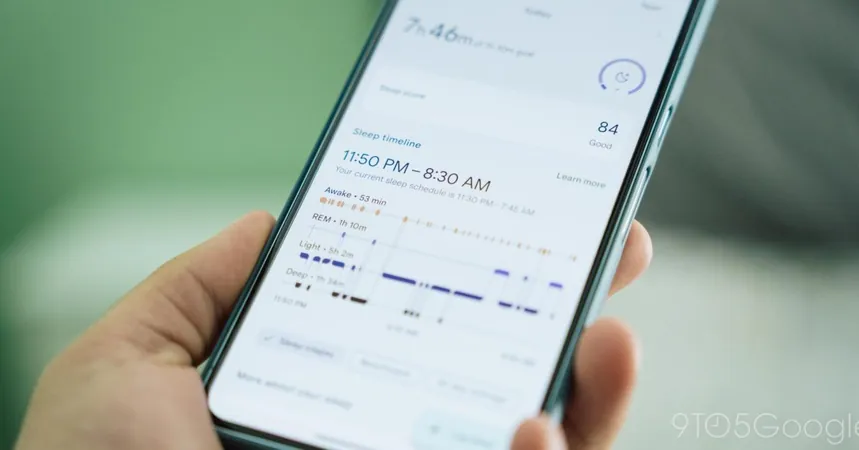
The Hidden Danger of 'Silent Celiac': How to Spot It Before It's Too Late!
2025-07-05
Author: Amelia
Celiac disease is a serious autoimmune condition that wreaks havoc on the small intestine when gluten is consumed. While many suffer from obvious gastrointestinal symptoms like stomach pain and bloating, some may be completely unaware that they have 'silent celiac'.
What Is Silent Celiac?
Silent celiac disease is a unique form of celiac that manifests without the typical symptoms. Dr. Rabia De Latour, a gastroenterologist, indicates that individuals can suffer physical damage, like inflammation in the small intestine, without experiencing classic GI distress. This condition is often overlooked, as many assume their mild discomforts—like fatigue or headaches—are just a regular part of life.
The Diagnosis Dilemma
Unfortunately, silent celiac goes undiagnosed more often than one would think. Dr. Kevin Cronley highlights the need for healthcare providers to be vigilant when it comes to testing for celiac disease, especially in patients with iron deficiencies or abnormal lab results. Often, the first hint of silent celiac disease comes from routine blood work that reveals nutrient absorption issues.
Recognizing the Risks
Those with a family history of celiac disease or co-existing autoimmune disorders are at higher risk for developing this condition. Additionally, conditions such as type 1 diabetes and certain skin rashes can increase vulnerability. Dr. David Kastenberg emphasizes that just because someone feels fine doesn’t mean they are—many symptoms can be subtle.
Effective Treatment Options
The silver lining? Silent celiac, like its more recognizable counterpart, is treated with a strict gluten-free diet. By eliminating gluten—a protein found in wheat—from their eating habits, patients can significantly reduce intestinal damage and avoid additional health complications. With growing awareness and popularity of gluten-free lifestyles, embracing this dietary change has become more manageable.
The Importance of Awareness
Taking silent celiac seriously is crucial, as neglecting it can lead to severe health issues like osteoporosis, nutritional deficiencies, and even complications during pregnancy. Dr. Kastenberg stresses that even without symptoms, the potential for long-term consequences should prompt individuals—especially those with a family history—to get screened.
In summary, silent celiac disease is a hidden health risk that demands attention. If you suspect you or a loved one may have it, don’t hesitate to seek professional advice. Early detection and lifestyle adjustments can change lives!









 Brasil (PT)
Brasil (PT)
 Canada (EN)
Canada (EN)
 Chile (ES)
Chile (ES)
 Česko (CS)
Česko (CS)
 대한민국 (KO)
대한민국 (KO)
 España (ES)
España (ES)
 France (FR)
France (FR)
 Hong Kong (EN)
Hong Kong (EN)
 Italia (IT)
Italia (IT)
 日本 (JA)
日本 (JA)
 Magyarország (HU)
Magyarország (HU)
 Norge (NO)
Norge (NO)
 Polska (PL)
Polska (PL)
 Schweiz (DE)
Schweiz (DE)
 Singapore (EN)
Singapore (EN)
 Sverige (SV)
Sverige (SV)
 Suomi (FI)
Suomi (FI)
 Türkiye (TR)
Türkiye (TR)
 الإمارات العربية المتحدة (AR)
الإمارات العربية المتحدة (AR)